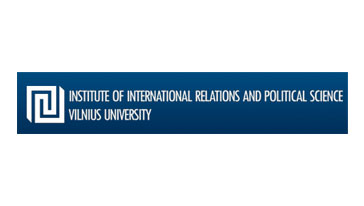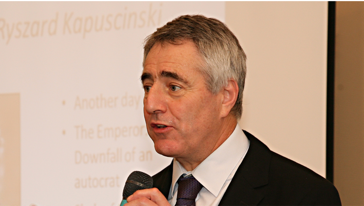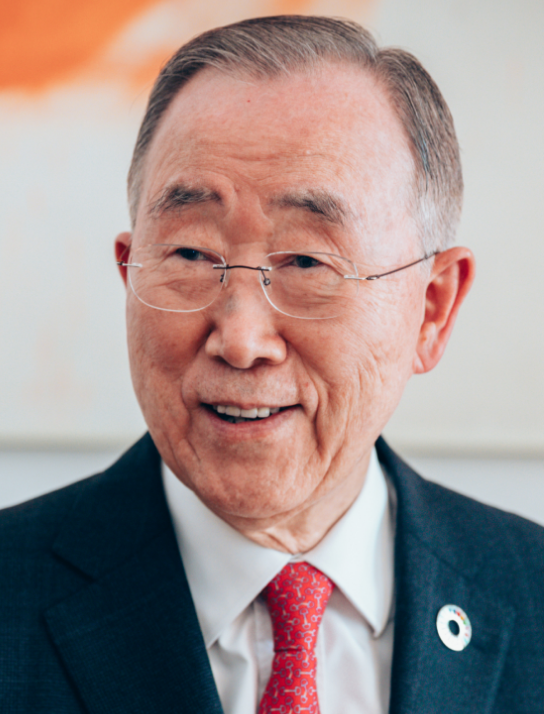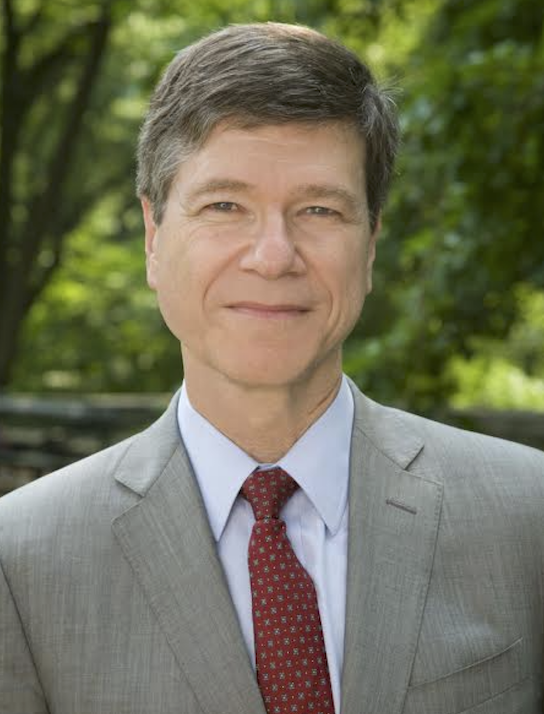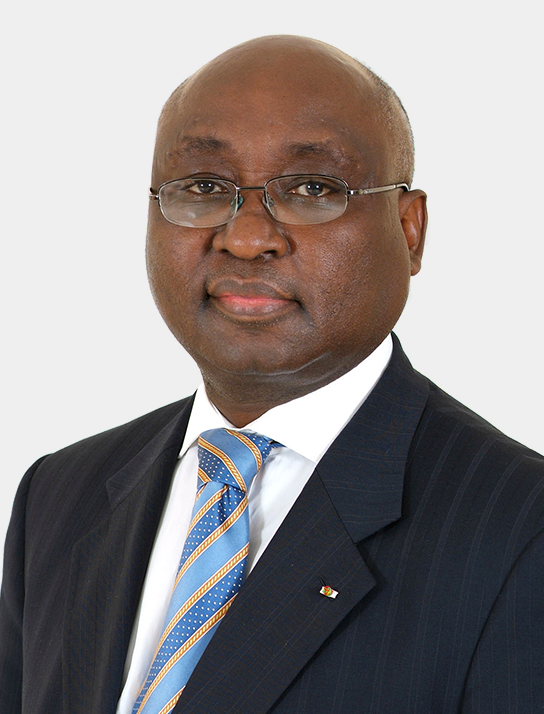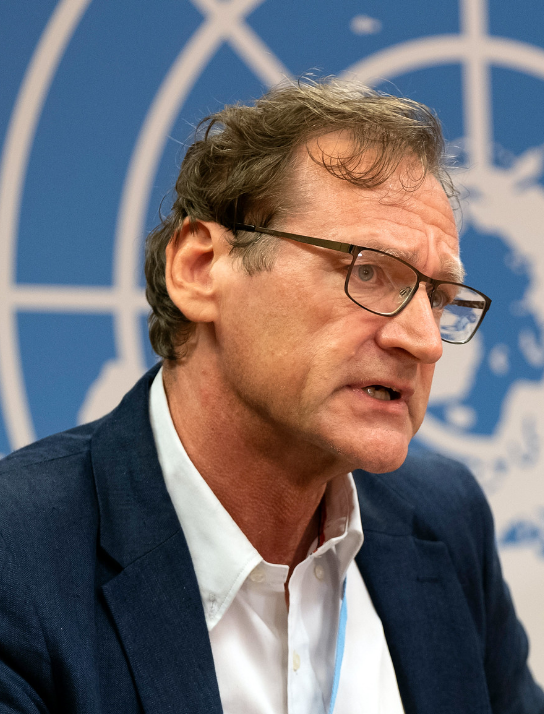‘Think Locally, Act Globally’: A New Framework for European Development Cooperation
Can development cooperation be defended at a time of economic austerity in Europe? The moral imperative remains strong, but contemporary events also illustrate the role of development cooperation in managing global risks and opening opportunities for prosperity and sustainability at home. The 27 Member States of the European Union can act independently or seek leverage through a variety of multilateral organisations, like the UN, the World Bank – or the institutions of the EU itself. What is the comparative advantage of the EU in development cooperation? What must change for us to achieve even greater impact?
The question of development indeed consists of three major dilemmas: How do we reform the development politics and re-frame the development itself? How do we mediate the response at the European level? And lastly, how can we make the case far more influential in countries which share sceptical view on the issues of development. These questions might seem essentially basic, though they provide pivotal opportunities for development policy if solved.
What can we learn from Ryszard Kapuscinski? Simple idea, “Think Locally, Act Globally”. It seems a bit different statement that we are used to, but it carries a strong message. There is no reason why the basic principles of our daily life cannot be implemented into a global perspective. Now, The European Commission is already one year in. How is it doing?
That is an important but specific question, since Andris Piebalgs has circumscribed responsibilities within the domain of development policy. Thus, there are separate Commissioners for trade, climate change, neighbourhood policy and even humanitarian action; as well, of course, as a Commission Vice-President and Council High Representative for external affairs. All have an interest in developing countries.
It is not difficult to imagine a worst-case scenario, in which the new External Action Service would have captured control of development policy and funding, and would be using it to pursue security and foreign policy objectives. The development Commissioner would be left managing implementation of others’ decisions, aided by a time-expired European consensus on development policy and a poorly structured and poorly functioning bureaucracy. Good news. The worst case has been avoided. In fact, there are positive stories to report at the end of the first year.
First, the worst predations of the foreign policy establishment have been dodged. Although the post-Lisbon External Action Service formally has the lead on aid programming, the Development Commissioner has joint authority. In practice, he also has under his control the development expertise on development issues, an area in which the EAS looks to be weak. This is as good an outcome as could have been expected, a victory for common sense, but also the result of good political management.
Second, Andis Piebalgs has begun to put his stamp on EU and EC development policy. The title of the Green Paper he published at the end of 2010, ‘ EU development policy in support of inclusive growth and sustainable development – increasing the impact of EU development policy’, summarises the main themes, and hints at others: growth, the private sector, energy, a focus on results, accountability.
Third, the Commissioner has established a good political foundation for further work. The key themes of the Green Paper resonate with other ministers around the EU Member States, all concerned with demonstrating the impact of aid at a time of fiscal stringency. The growth and private sector themes also resonate with many, including the new Government in the UK.
Fourth, there has been an important decision to restructure the bureaucracy, merging DG Development, which previously dealt with policy, and Europe Aid, which led on implementation. The creation a new ‘DevCo’, under the leadership of Fokion Fotiadis, offers the opportunity of better strategic leadership on policy, and more effective administration.
Fifth, there have been some significant moments on the ground, for example in negotiating a coherent EU response to the Haiti earthquake. The EU offered a coherent position at the MDG Summit in New York in September 2010. There have also been summits with Africa and Asia.
Sixth, the EU’s development programme has been ranked highly in recent comparative evaluations, for example by the Centre for Global Development in Washington. They score development agencies with respect to 30 criteria related to: maximizing efficiency; fostering institutions; reducing burdens; and transparency and learning. The EC scores above the mean on all four of these aggregate measures. That is a far cry from the situation of a few years ago, and far also from the jaundiced public view of EC performance.
Should the record have been even better? Obviously, the development community, this author among them, has expectations which can never be satisfied. The gravity of poverty in the world demands no less. The Commissioner has been in office a whole year, yet poverty still persists!
Realistically, there are certainly some items of unfinished business.
First, the agenda is overloaded with policy papers and consultations. Second, and paradoxically, the policy agenda is incomplete. Third, and again paradoxically, given the range of policy initiatives, the Commission is remarkably poorly staffed in the policy area compared to its peer group among the large international donors. The EC, remember, not the EU as a whole, but the European Commission, disburses more in official development assistance than the World Bank, and about as much as the whole of the United Nations. Its weight and influence in global policy debates falls far behind either the Bank or the UN – even allowing for the innovation of an annual European Development Report. Some argue that the EC should leave the thinking to others, but surely a 10 billion euro aid programme needs to apply to itself the principle of being learning and thinking organisation, even before bringing into the mix other areas like trade.
Fourth, the EC ‘talks the talk’ on cooperation with other regions, but is very unevenly vigorous in ‘walking the walk’. Africa takes pride of place, though doubts remain about whether Europe is as effective a partner, or as preferred a partner, as China. In other regions, Europe needs to accelerate the transition from an aid relationship to a true strategic partnership on global and regional issues. The Asia Europe Meeting (ASEM) offers unfulfilled potential in this respect.
Finally, the Commission still struggles with the core question of whether Europe is a forum for cooperation between Member States, with energy focused on setting standards and managing coordination on the ground – or a forum for consolidation, with a greater share of aid passing through the Commission. It is yet another paradox that senior policy-makers use the language of coordination, and express their preference for this way of working, while simultaneously funding the largest channel in the world for ODA.
Here lies the challenge – and the opportunity.
I have argued elsewhere that the Commission should stop playing poker with development policy and reveal its hand. Another way of saying this is that the Commission should stop trying to cover all topics equally, but state its priorities, including those to do with growth, the private sector and energy. Commissioner Piebalgs might be surprised by the extent of support. In any case, it would be good to speed up.
Next, tackle head-on the apparent contradiction between cooperativist thinking and consolidationist behaviour. This may be a high-risk strategy, but is essential to help frame the debate now starting about the Financial Perspectives 2014-2020. At present 20% of EU development spending goes through Brussels. Is this about right? Too large? Too small? How do grants relate to loans, for example through the European Investment Bank? And what can be learned from the experience of creating shock facilities, like V-Flex and the food facility?
Three items on the to-do list for 2011. That doesn’t sound impossible. Ministers of the EU-27 should support this level of ambition and engage in making change happen.
With some EU economies in crisis and others facing unprecedented fiscal retrenchment, the auguries are not favourable for new, large-scale financial contributions. Further, there is little appetite in certain quarters for EU engagement in multilateral initiatives, with some writing of a ‘zero-sum world’ and others of ‘Europe’s Decline and Fall’.
Nevertheless, few leaders would deny that development represents an existential threat to humankind. And all would recognise that tackling the challenge is a matter of politics not technical analysis. That is why leaders themselves need to engage. Development is too important to be left to environment ministers, or even to foreign ministers.
